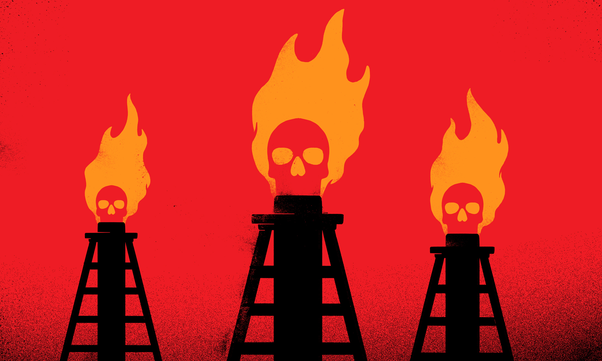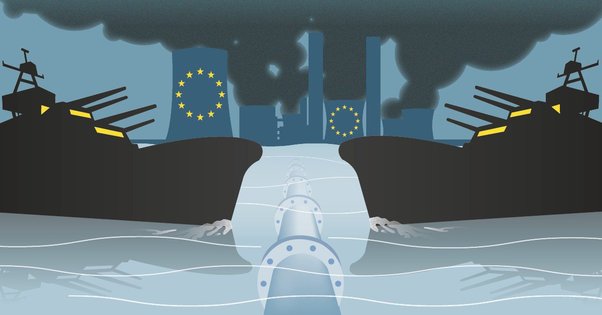Hydrogen heating is likely to be a niche technology at best, as it is expected to be expensive, inefficient and poses health and safety hazards. Nevertheless, this investigation reveals that boiler companies are engaged in misleading marketing campaigns to greenwash fossil gas boilers as "hydrogen ready", while gas suppliers attempt to make consumers pay for hydrogen infrastructure and avoid a death spiral for their industry
Gas boiler companies are greenwashing their fossil-fuel-burning products with hydrogen or hydrogen-ready labels, despite many admitting that most will burn fossil gas for their lifetime, and concerns over high costs and health and safety questions that swirl around burning hydrogen.
Consumers may opt for the low upfront costs of a "hydrogen ready" boiler believing that they are doing their part to reduce emissions. However, these boilers will either continue to burn fossil gas, or if there is a switch to hydrogen, they may be stung by high running costs, toxic emissions, and climate-warming impacts.

Download the report : Burning the public
Download ResourceOnly a quarter of gas distributors in Europe expect to be “fully ready” to distribute 100% hydrogen by 2035, meaning that owners of hydrogen-ready boilers might wait a decade and more for an alternative fuel supply and continuing to burn carbon-emitting fossil gas.
Vaillant, one of the largest manufacturers working on hydrogen boilers admits that they do not expect homes to see hydrogen before the 2030s and “for some installations there will be no tangible benefit of their wall-hung boiler being hydrogen ready as they may never see hydrogen in their lifetime.”
British Gas, a major UK gas supplier and boiler seller explains that any hydrogen ready boiler bought today “will probably use natural gas for all its working lifetime.”
We also identified misleading adverts and marketing from several major boiler manufacturers stating that the only emission from burning hydrogen is water, when in fact dangerous nitrogen oxides (NOx) are emitted. NOx emissions exacerbate respiratory problems like asthma and have been linked to reduced cognitive performance, especially in children.
With more customers switching to more affordable and less polluting heating systems, like electric heat pumps, fewer gas consumers will be left to pay to maintain and convert the gas grid to hydrogen, piling on further costs.
This in turn could prompt more customers to move away from gas, creating a spiral where the consumers least able to afford the upfront cost of switching or who are otherwise unable to switch face very high costs.
An analysis of previously undisclosed European lobbying records has found that gas suppliers have lobbied to make customers pay for the expansion and conversion of gas infrastructure necessary to carry hydrogen.
A previous report by Element Energy estimates that such a switch would cost all gas consumers €240bn – on top of already historically-high bills.
Europe has an opportunity to move away from burning fossil fuels in our homes, end our reliance on Russian gas imports and limit our exposure to fossil fuel price crises.
Government support needs to flow to the best solutions that help limit greenhouse emissions and help consumers, not prop up the gas industry’s hydrogen white elephants. Instead, new EU market rules should ensure the rapid phase out of gas use across all sectors by 2035.
Recommendations
The lobbying around hydrogen heating yet again shows that the fossil fuel industry has no place in setting climate and energy policy. Instead, we need a Fossil Free Politics where fossil fuel interests have been firewalled off from policy makers, similar to existing restrictions on tobacco lobbyists.
After decades of denial, delay and greenwashing over 270,000 Europeans have signed a European Citizens Initiative calling for legislation prohibiting advertisements for fossil fuels, a ban that could prevent greenwashing of false solutions in the future. If the petition reaches one million signatures the European Commission will be legally obliged to respond.
The European Union is currently debating a new framework for gas markets. Rather than funnelling public money into false solutions policy makers working on the gas package should ensure:
- Market rules are adopted that ensure the rapid phase out of gas use across all sectors, including households and industry by 2035
- Hydrogen blending is excluded, and hydrogen can be encouraged solely where it is the only viable alternative to gas, for example in certain heavy industries. Hydrogen should only be produced using renewable electricity
- Network planning by gas distribution system operators is more transparent, and open to participation from stakeholders, including communities, civil society and local governments. Planning should be in line with EU and national climate and energy targets, be based on local heating and cooling plans, and identify those parts of the network that require decommissioning
- Energy regulators are tasked to examine the cost-effectiveness of supplying buildings with hydrogen, including costly distribution grid upgrades
- Households must not be required to cross-subsidise hydrogen infrastructure from which they do not directly benefit
Download the report : Burning the public
Download Resource

